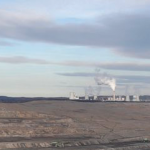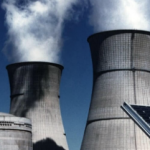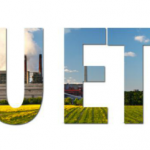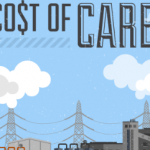On November 30th, 2020, we ran a live online panel discussion concerning the re-design of the EU ETS in the wake of new, higher CO2 reduction targets being agreed by the EU. The target now stands at a 55% reduction c/w 1990 levels by 2030, up from 40%. A huge jump in order to keep in line with Paris commitments. The session was moderated by Matthew James, Managing Director at Energy Post and featured interventions from Andrei Marcu (Chairman at … [Read more...]
Anna Zalewska MEP Q and A: “We cannot drop coal from our energy mix in a decade”
Over the past twelve months Energy Post has provided readers with two well-attended panels (Modernisation Fund, Just Transition Fund), sponsored by PGE Poland, focussing on EU mechanisms and policies designed to support countries like Poland (plus other carbon-intensive and/or lower-gdp Member States) with their decarbonisation strategy. Today, Anna Zalewska MEP (ECRG and member of the ENVI committee of the European Parliament) makes use of … [Read more...]
EU ETS Modernisation Fund: putting the wind in the sails of the Transition
Transforming the power system to reach climate neutrality by 2050 will cost approximately €100bn per year according to Eurelectric. In recognition of the different starting points for Member States, the European Commission has introduced the new EU ETS Modernisation Fund (MF) which could be worth as much as €25bn* to the beneficiaries between 2021 and 2030. According to Monika Morawiecka, CEO of PGE Baltica, offshore wind already makes business … [Read more...]
Can nuclear compete for a bigger role in the transition?
With plans to phase out coal-fired generators in most of Europe, nuclear is trying to compete with gas to become the most viable baseload power source to accompany renewables on the path to net-zero emissions. Both technologies have their advantages. Gas is competitively priced while nuclear generates power with almost no emissions. Right now, gas's cost advantage is evidently great enough to tip the balance. If nuclear advocates are to … [Read more...]
EU ETS price contributing to gas demand
Whilst the top-level 40% 2030 emissions reduction target looks relatively safe, share from RES is definitely not. Carbon pricing, in its various forms, is working but, frankly, not in a predictable or even desirable way. A closer inspection of the market-driven EU ETS permit scheme illustrates how and why gas – especially American LNG – is going strong, putting the 32% share of final energy consumption from renewables in doubt. … [Read more...]
Coal’s cost increase leaves no cause for celebration
Coal’s carbon impact is clear from the fact that it produces 20% of electricity and 65% of EU power sector emissions. But even with EU coal prices at a five-year high, we are unlikely to see short-term European coal emissions reductions. Emissions Trading System prices would have to double to push coal out of the EU electricity mix, says Paul Deane of University College Cork's Environmental Research Institute. … [Read more...]
Post-Brexit carbon tax would set Scotland against UK
The UK is weighing up future carbon pricing options in a post-EU world, but Scotland will not abide a London plan for a national tax because that would impinge on devolved powers. Resolving the issue will not be easy, particularly in the event of a no-deal Brexit, writes Sara Stefanini, Climate Home News. Courtesy of Climate Home News. … [Read more...]
Poland’s PGE should accelerate its coal diversification plans
Poland’s biggest utility, PGE, should accelerate plans to diversify away from coal, as surging carbon prices underscore risks gathering around its present PLN 21 billion ($5.6 billion) coal power investment programme, write Gerard Wynn of IEEFA (Institute for Energy Economics and Financial Analysis) and Paolo Coghe of the Paris-based independent consultancy Acousmatics. Courtesy Energy and Carbon Blog. … [Read more...]
Interview Ditlev Engel, CEO DNV GL Energy: “We have to rethink the mechanisms of the electricity market”
DNV GL’s new 2018 Energy Transition Outlook projects a massive investment shift from fossil fuels to renewables and grids – and this is based mainly on cost considerations. Yet, notes Ditlev Engel, CEO of DNV GL Energy, in an interview with Energy Post, this won’t be enough to meet the goals of the Paris Climate Agreement. He says policymakers will have to take additional actions. “Doing just a little more won’t be enough.” (See here for main … [Read more...]
Estonia needs a plan – and support – to get rid of its dirty oil shale
The need for a transition to sustainable energy is widely felt in Estonia, but after twenty years of talking, Estonia’s dirty oil shale industry is still carrying on. In fact, thanks to lower taxes, a boom in oil shale mining is expected. Estonian Green Movement, a member of Bankwatch, recently presented the national parliament with a proposal for a strategic oil shale exit plan. According to Teet Randma, national campaigner for Bankwatch in … [Read more...]
Tipping point: new wind and solar competitive with existing coal and gas
€20/ton carbon prices in combination with high coal and gas prices have created a new tipping point in Europe, writes Dave Jones of UK-based think tank Sandbag. For the first time, new onshore wind and solar can compete with existing coal and gas plants. … [Read more...]
The carbon floor price – a hammer in need of a toolbox
Carbon pricing is often regarded as the Holy Grail of climate policy. But according to Richard Cowart, Principal at the Regulatory Assistance Project (RAP), carbon prices cannot be a stand-alone solution. They have limited reach and – especially in electricity -- can be expensive for consumers. Nor are high carbon floor prices a magical solution: they don’t reduce the surplus of allowances and may not even reduce emissions. According to Cowart, … [Read more...]
Poland’s largest utility, PGE, faced with growing risks from transition
The financial stability of PGE, Poland’s largest utility, could be undermined if it sticks with its current fossil fuel-heavy generation profile, writes Gerard Wynn. In a new report for the Institute for Energy Economics and Financial Analysis (IEEFA), Wynn concludes that the company could be hit hard by increasing carbon prices and tougher air pollution rules if it does not shift away from coal. … [Read more...]
Uneconomic coal could be squeezed out of European Union power markets by 2030
Coal’s time is running out in Europe: deteriorating economics and stronger climate policies will soon make coal uneconomic, writes Silvio Marcacci of think tank Energy Innovation. Many European countries have already set an end date for coal power, utilities and investors are shifting away from it. The question is not if coal will lose, but when, and how well-managed its exit will be. … [Read more...]
EU policy must wake up to carbon dioxide removal
Most scenarios to meet the Paris Agreement’s targets require negative emissions technologies. However, carbon dioxide removal is not part of the EU’s climate policy yet. Its integration presents a serious challenge to the EU’s low-carbon policy paradigm and experience, write Oliver Geden of the German Institute for International and Security Affairs, Vivian Scott of the University of Edinburgh and James Palmer of the University of Bristol. … [Read more...]
- 1
- 2
- 3
- …
- 11
- Next Page »
















